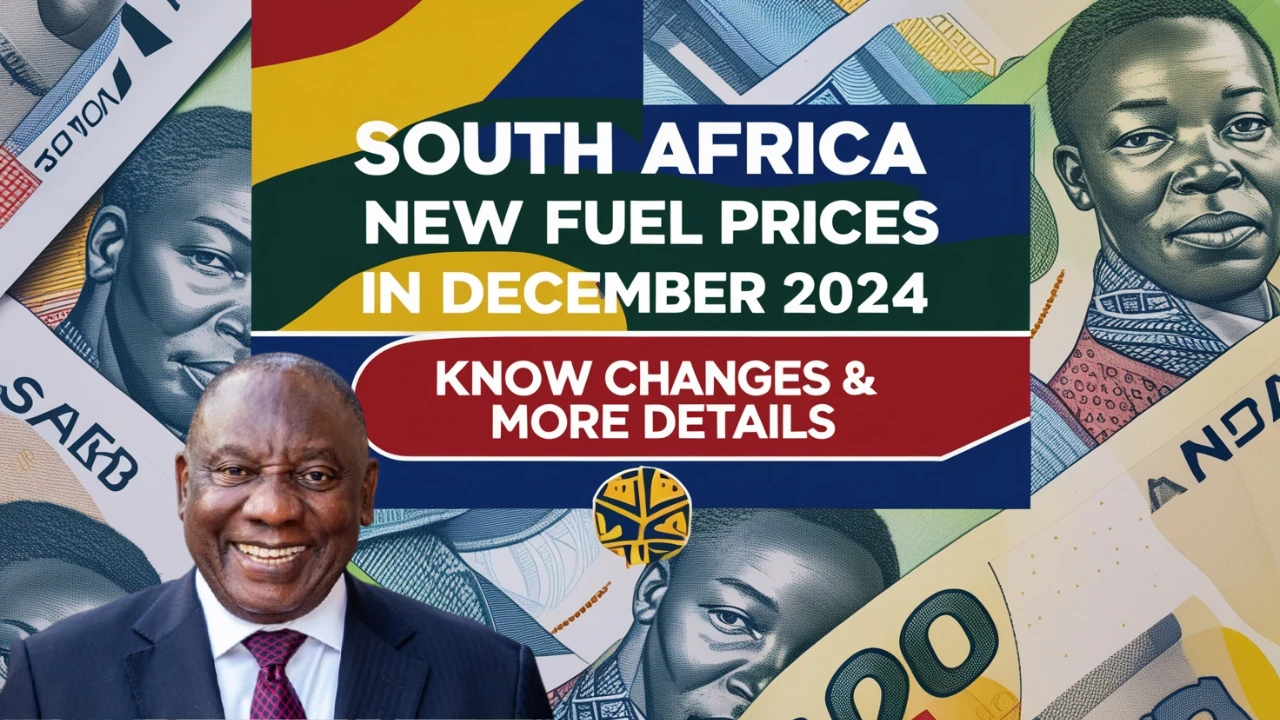Fuel prices in South Africa are once again on the rise this December, with petrol seeing a modest increase while diesel takes a sharper hit. These price adjustments will have a ripple effect on transportation costs, household expenses, and overall economic activities. Understanding the factors behind these hikes and finding ways to manage costs can help you navigate this challenging period.
December 2024 Fuel Price Changes in South Africa
South African motorists are no strangers to fluctuating fuel costs. As we step into December 2024, petrol and diesel prices have been revised, affecting both private and commercial transport. Here’s a breakdown of the latest price adjustments:
| Fuel Type | Price Increase |
|---|---|
| 93 & 95 Unleaded Petrol | Up by 17 cents per litre |
| 50ppm Diesel | Up by 56 cents per litre |
| 500ppm Diesel | Up by 55 cents per litre |
Primary Reasons for the Increase
- Rand Depreciation Against the Dollar: A weaker exchange rate, moving from R17.53 to R17.93 per USD, makes importing fuel more expensive.
- Global Oil Market Trends: Brent Crude Oil is priced at approximately $72.70 per barrel, slightly down from $73.28, but not enough to counteract other price pressures.
- Seasonal Diesel Demand: The Northern Hemisphere’s winter raises global demand for diesel, increasing costs worldwide.
- Shipping & Logistics Costs: Rising transportation and supply chain costs add to the overall fuel price burden.
How These Fuel Price Changes Impact You
1. Higher Transport Expenses
If you own a vehicle, this fuel price hike means spending more on every trip.
- A 17-cent increase in petrol translates to roughly R8.50 extra per 50-litre tank.
- Diesel vehicle owners will see a steeper rise, paying around R28 more for a full tank.
2. Increased Costs of Goods & Services
- Grocery Prices: Higher transport costs for goods distribution may lead to increased food prices.
- Delivery Services: Expect a rise in courier and e-commerce delivery fees as logistics companies adjust to higher fuel costs.
3. Higher Household Energy Bills
For homes using paraffin for cooking or heating, expenses will rise. A household consuming 20 litres of paraffin per month may pay around R11 more due to the price hike.
4. Push Towards Electric & Alternative Energy Solutions
With fuel prices consistently rising, many South Africans are considering electric vehicles (EVs) and renewable energy alternatives like solar power. Though EVs require a high initial investment, they offer significant long-term savings on fuel and maintenance.
Practical Tips to Reduce Fuel Costs
Here are some actionable steps to minimize fuel expenses:



